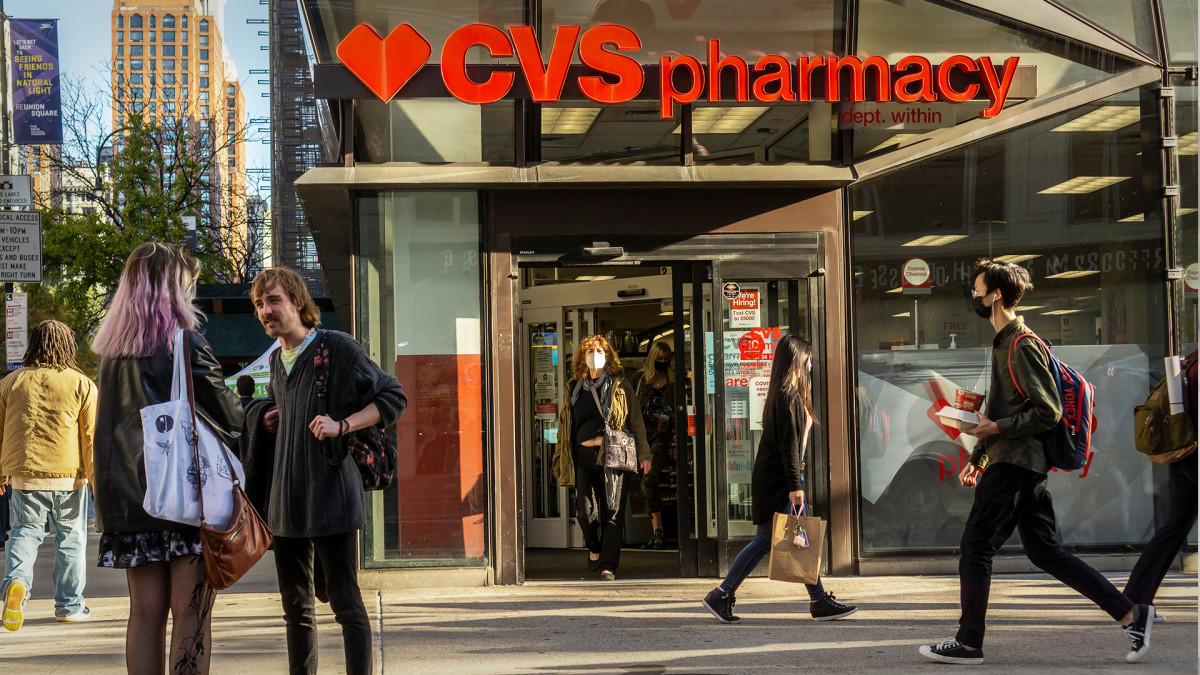- Amazon has tried to disrupt healthcare multiple times.
- Amazon is legally a pharmacy.
- The online giant is trying a new idea involving vending machines.
Amazon wants to help fix the American health care system, but it has learned that actually doing so is really difficult.
The company has failed multiple times, but that has not stopped it from trying again.
“We should never underestimate Amazon. But we also shouldn’t underestimate the challenges it faces in working its usual magic in America’s huge, troubled, tangled health care sector. Even Amazon has learned this the hard way in its failed Haven partnership with Berkshire Hathaway and JPMorgan Chase and, to date, the lack of market share or disruption by Amazon Pharmacy,” wrote David Blumenthal and Lovisa Gustafsson for Harvard Business Review.
Its latest health care effort is an attempt to make getting prescriptions filled easier. That’s a timely move with Rite Aid closing its entire operation nationwide, and CVS and Walgreens closing hundreds of stores each.
Amazon wants to be your pharmacy in a new way
Amazon will already fill prescriptions through its existing Amazon Pharmacy, which grew out of its purchase of PillPack for $1 billion in 2018. That venture, however, is slower than the traditional method of stopping at a local pharmacy to fill a prescription.
Its new method of doing that, Pharmacy Kiosks, allow patients to pick up prescriptions within minutes of their medical appointment.
More Health Care:
- How the government shutdown affects Social Security, Medicare
- Dave Ramsey warns Americans on critical Medicare mistake to avoid
- Health insurers make a major move older Americans won’t like
“We know that when patients have to make a separate stop after seeing their doctor, many prescriptions never get filled,” said Amazon Operations Vice President Hannah McClellan in a press release. “By bringing the pharmacy directly to the point of care, we’re removing a critical barrier and helping patients start their treatment when it matters most — right away.”
Beginning in December 2025, kiosks will be available at select One Medical offices across the greater Los Angeles area, including Downtown LA, West LA, Beverly Hills, Long Beach, and West Hollywood. Amazon’s Pharmacy Kiosk expansion will include additional One Medical offices, and other locations will follow.

Shutterstock
A history of Amazon’s health care efforts
2018-2019: Amazon’s initial health care ventures
- January 2018: Amazon, Berkshire Hathaway, and JPMorgan Chase announce Haven, a joint venture aimed at improving health care for their employees.
- June 2018: Amazon acquires PillPack for $753 million, rebranding it as Amazon Pharmacy to enter the online pharmacy market.
- November 2018: Launch of Amazon Comprehend Medical, a machine learning service for extracting health data from unstructured text.
- October 2019: Amazon acquires Health Navigator, a health API startup, to enhance its digital health capabilities.
2020-2022: Amazon’s expansion into virtual and in-person care
- February 2020: Amazon launches Amazon Pharmacy, offering prescription medications with free two-day delivery for Prime members.
- March 2020: Amazon Care, a virtual and in-home health care service, begins pilot programs for employees in Washington state.
- November 2022: Amazon Clinic is introduced as a virtual health care service for common conditions, operating nationwide.
- December 2022: Amazon announces the closure of Haven, citing challenges in creating a scalable health care model.
2023-2024: Amazon makes more moves
- February 2023: Amazon acquires One Medical for $3.9 billion, integrating its services with Amazon Prime offerings.
- June 2024: Amazon Clinic merges with One Medical, forming Amazon One Medical, combining virtual and in-person care services.
- July 2024: Amazon announces a restructuring of its health care business into six units to enhance innovation and patient services.
2025: Amazon tries a new way
- October 2025: Amazon Pharmacy introduces prescription drug vending machines at One Medical clinics in Los Angeles, allowing patients to pick up medications immediately after appointments.
- October 2025: Eli Lilly partners with Amazon Pharmacy to distribute medications, including diabetes treatments and migraine medications, through Amazon’s platform.
Will Amazon prescription vending machines work?
GlobalData Managing Director Neil Saunders thinks this is clear win for Amazon.
“Yes, many people will be happy to use these. Why? Because it’s efficient and fast and, in some cases, allows customers to get their medication immediately after an appointment without making a separate trip to the pharmacy,” he told RetailWire.
The adoption, of course, won’t be universal.
“Of course, others will prefer to speak to a pharmacist or have a more personal experience – and there are alternatives for them. And this is really only applicable to common medications, so it’s not going to revolutionize the entire pharmacy market – but it is opening up more options, which is a good thing,” he added.
Multiple-time author of books on retail Mark Ryiski agrees with Saunders.
“Expanding access to health services including prescriptions is a good thing. For some patients, this will certainly positively impact fill rates and convenience,” he wrote on the same platform.
Some, he noted, will struggle with the new technology.
“That said, I suspect that older patients will not feel as comfortable filling their prescriptions via kiosk and will continue to do what they usually do. The challenge I see to this is getting physical locations to install the kiosks and then to keep them stocked,” he shared.
Scott Benedict, who has over 30 years of retail experience, does see some potential pitfalls.
“Key concerns include quality control, privacy, stock management (will the kiosks keep up with demand and avoid stockouts?), and ensuring patients receive adequate pharmacist consultation. Some prescriptions require nuance, education, or side-effect discussions. Amazon plans to layer virtual pharmacist review on top of the kiosk model, which mitigates that risk to some degree. If those safeguards hold, then yes — the benefits likely outweigh the cons in many settings,” he posted.
Related: Pioneering pizza chain has closed 80% of its restaurants
#Amazon #gift #frustrated #CVS #Walgreens #customers